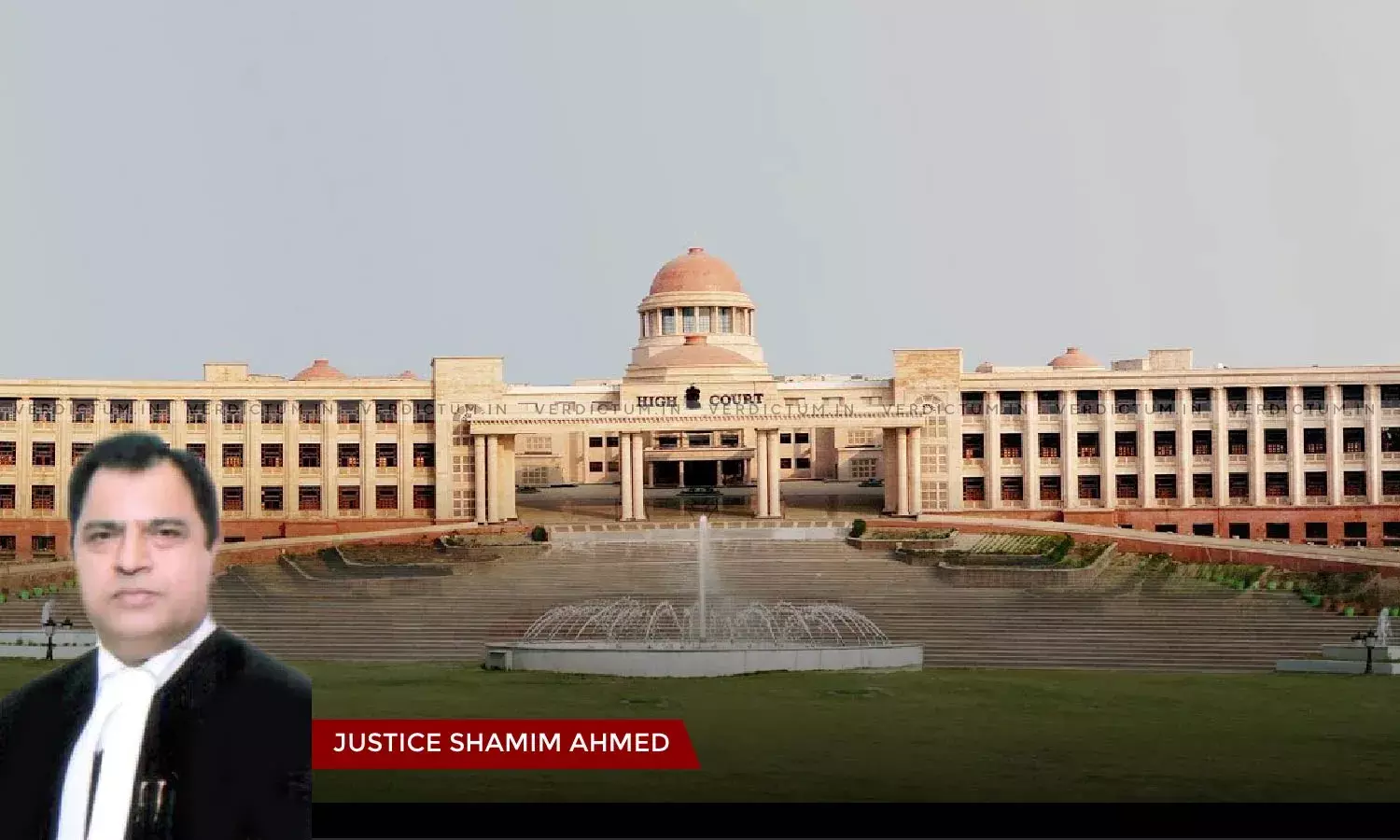Judiciary Cannot Exist Without Trust & Confidence Of People: Allahabad HC Pulls Up Judicial Officer For Discriminating Against Muslim Lawyers
The Allahabad High Court summoned the Additional District & Sessions Judge N.I.A-A.T.S., Lucknow who allegedly discriminated against the Muslim Lawyers.
The Sessions Judge then submitted an unconditional apology and submitted that the orders were passed under misconception, which shall be rectified.
The Bench of Justice Shamim Ahmed observed, “It is further observed here that in view of the discussions/observations and after perusal of the orders passed by the trial court, this Court fails to understand the basis and legal aspects on which the findings of the impugned orders were placed by the trial court and it is also relevant to take note of the fact that the trial court while passing the impugned orders had made certain observations regarding a particular community. This shows judicial misconduct, which breaks down the very fibre of what is necessary for a functional judiciary-citizens who believes their judges are fair and impartial. The judiciary cannot exist without the trust and confidence of the people. Judges must, therefore, be accountable to legal and ethical standards. In holding them accountable for their behavior, judicial conduct review must be performed without invading the independence of judicial decision-making. Thus, the Additional District & Sessions Judge IIIrd/Special Judge, N.I.A-A.T.S., Lucknow is directed to file a personal affidavit explaining therein that under what circumstances, he had passed the orders dated 19.01.2024 and 20.01.2024 and why the order of this Court dated 05.03.2024 has been perused in a piece meal not been complied in full spirit.”
Advocate Abhishek Singh appeared for the Applicant whereas AGA Shiv Nath Tilhari appeared for the Opposite Party.
An application under Section 482 of the Code of Criminal Procedure was filed on behalf of the Applicant/Accused herein for quashing of orders passed by the Sessions Judge in a case under Sections 417, 120B, 153A,153-B 295-A, 298, 121-A and 123 of Indian Penal Code and Sections 3,5 and 8 U.P. Prohibition of Unlawful Conversion of Religion Act, 2021 and prayed to direct the trial court to comply with the provisions of Section 207 of Cr.P.C. i.e. supply of all documents to the Applicant/Accused.
The High Court, vide order dated March 5, 2024, granted an interim stay on the proceedings pending before the trial court. Thereafter, the case was listed before the Trial Court and it passed an order without giving any observation as to the supply of documents under Section 207 Cr.P.C..
As regards, the Court said, “It is further observed here that so far as the application moved by the applicant under Section 207 Cr.P.C. seeking copy of the electronic evidence proposed to be relied by the prosecution against him, the trial court has remained silent and did not provide a copy of the electronic evidence to the applicant, which is a mandatory provision under Section 207 Cr.P.C. read with Section 238 Cr.P.C. It is further observed here that even though an interim protection was granted by this Court vide order dated 05.03.2024, the trial court has proceeded with the trial ignoring the observations made by this Court in the said order against the present applicant. Thus, it appears that the trial court has failed to understand the tenor of the order passed by this Court and did not comply with the order of this Court in full spirit and has proceeded with the trial, this shows the misconduct of the trial court.”
The Trial Court in January 2024 had also given its finding regarding the non-presence of counsel for the applicant during the trial as they belong to a certain religion and they often leave the court to offer prayers at the place of worship and in pursuance of that he was appointed the amicus curie to represent the applicant during the trial against the wishes of the Applicant and other co-accused persons, who have appointed counsels of their choice and their religion on their behalf to represent themselves in the trial court.
As regards, the High Court said that this showed clear discrimination on the part of the trial court based on religion, which is a clear violation of the Fundamental Rights enshrined in Article 15 of the Constitution of India.
The High Court also discussed the ethics and standards of judicial authorities and held “Thus, if there were other grounds they ought to have been stated in the order of the trial court. It can be clearly inferred that the trial court had passed the order which is directly contrary to the terms of Article 15(1) as violating a specific constitutional prohibition. The learned Judge of the trial court has clearly discriminated one community only on the basis of religion…It is further observed here that judicial misconduct comes in many forms and ethical standards address problematic actions, omissions and relationships that deplete public confidence. Common complaints of ethical misconduct include improper demeanour; failure to properly disqualify when the judge has a conflict of interest; engaging in ex parte communication and failure to execute their judicial duties in a timely fashion. Behavior outside of the courtroom can also be at issue. Judicial conduct oversight should not attempt to regulate purely personal aspect of judges life.”
Accordingly, the matter is now listed for a further date.
Cause Title: Mohammad Idris v. State of U.P.
Appearances:
Applicant: Advocates Mohemmed Amir Naqvi, Abhishek Singh, Ajeet Pratap Singh and Zia Ul Qayuim.
Opposite Party: AGA Shiv Nath Tilhari












